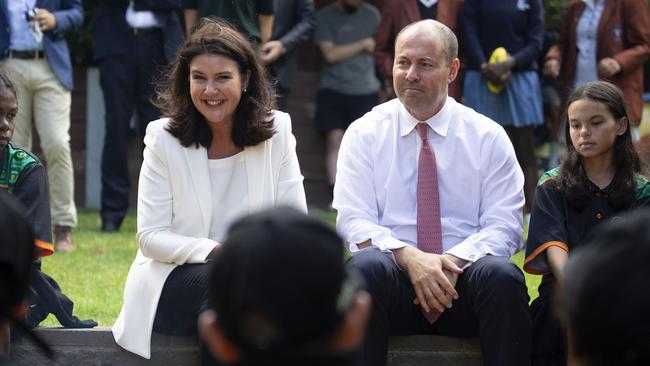Win for industry super funds as government backflips on disclosure
Industry super funds have secured a big victory after the Morrison government withdrew a proposal to require individual disclosure of valuations for their unlisted assets.

Industry superannuation funds have secured a major victory after the Morrison government backflipped on a proposal to require them to disclose individual valuations for their unlisted assets.
Instead, the government will take an aggregated approach involving asset classes, such as infrastructure and private equity.
Treasurer Josh Frydenberg and Financial Services Minister Jane Hume also flagged in a statement the preparation of a report on the widespread use of derivatives by super funds, after it had become apparent during consultation on the disclosure reforms that super funds had large exposures to the complex financial instruments.
Given super was now a systemically important part of the financial system, the Treasurer and Senator Hume said it was timely for policymakers and regulators to have a sound understanding of the extent and nature of the use of derivatives, including any implications for the operation of the financial system.
The Council of Financial Regulators would therefore prepare a report on the matter, drawing on the information gathering powers of the prudential regulator APRA and the input of the Reserve Bank.
The industry funds waged a fierce campaign against the original disclosure proposal, arguing it would slash member returns and increase costs, contrary to the government’s objective of lowering costs. They said it would hand confidential information to sophisticated market participants like hedge funds and sovereign wealth funds, undermining the position of super funds when they were negotiating with possible buyers over asset sales.
Industry Super Australia, on behalf of the nation’s industry funds, welcomed the government’s revised approach, saying it struck the right balance of providing members with greater investment transparency without harming their financial interests.
“The decision will allow industry funds to continue to invest with confidence in infrastructure assets and other unlisted assets, which have delivered tremendous returns to members, and where appropriate manage those investments internally which reduces fees to members,” ISA said in a statement.
“Revealing commercially sensitive asset valuations to the market would have put industry funds and their members at a disadvantage when the asset was sold – as buyers would know precisely where to pitch their bids.
“This was patently not in the best interest of super fund members, as it would have robbed funds of the chance to sell assets at a premium.”
Mr Frydenberg and Senator Hume announced the government’s final approach to the disclosure issue in a short statement.
They overlooked the withdrawal of the original proposal, saying the super industry would benefit from a “major boost” to transparency.
“Members will be able to clearly see how much of their retirement savings are being invested by superannuation funds across a range of asset classes and derivatives,” they said. “This information will make it easier for members to compare products and identify the most suitable fund for them.”
Under the regulations, super funds would be required to first report their holdings by March 31, with portfolio holdings disclosure to occur every six months.
The government said it would closely monitor these disclosures and consider “further refinements where necessary”.
ISA deputy CEO Matt Linden said the Ministers should be congratulated for taking a commonsense approach to investment disclosure, providing meaningful information to members while protecting their interests.



To join the conversation, please log in. Don't have an account? Register
Join the conversation, you are commenting as Logout